21 “Frankie” by Mississippi John Hurt
5April 26, 2009 by gadaya
Mississippi John Hurt’s World
From all the Anthology artists, only a few were rediscovered during the Folk revival. Some were dead, some were unable to play music anymore, but some had a second career, thanks to the Anthology and the work of folk and blues entusiasts who looked after them and gave them a chance to perform and record again. Furry Lewis, Clarence Ashley and Dock Boggs notably, were took out of their hometowns and working life to make public performances all over the country and make new records. To all of them, their musical career had stopped during the Depression and couldn’t believe people had any interest about records they have made some 30 years ago. The most surprised of them all was Mississippi John Hurt, who by chance had recorded a few 78 rpm records at the end of the 1920’s in Memphis and New York, but apart from that, spent all his life working in the farms and fields around his hometown of Avalon, Mississippi. He was a kind of “back porch” musician, playing the guitar and singing mostly to entertain his family and neighbours, or maybe for a square dance he would accompany a fiddle player but had no ambition to make a career or something like that and it reflects in his music and the songs of his repertoire. Most of it was pre-blues black folk ballads and spirituals, all played with a ragtime feel, thanks to his alternating bass and gentle and melodic picking on the guitar. He was not a “Blues” singer in the usual sense but more of a “songster”, and his music reflects a time and style of country black music that precedes the “Blues” craze of the 1920’s, when most of the recorded black guitar singers were supposed to sing “Blues” mostly because that was what the record companies wanted to sell to the public.
We’re lucky that on his recording session in New York in the 1920’s, John Hurt sang a song he made about “Avalon, my hometown…” that reflect his longing for home as he was away for the first time, finding himself so displaced and lonely in the big city. Thanks to this song, Tom Hoskins, a young Blues enthousiast who discovered Hurt’s music like many others on the Anthology in the 1960’s, could manage to find him in 1963 in Avalon, still farming and working hard to feed his many children and grand-children. From then until his death in 1967, he became a much-loved figure of the Blues and Folk scene, charming everyone with his gentle manners and his delicate songs. He was the perfect “grandfather” of the Folk Revival, the “patriarch of the hippies” as someone called him. During these 4 years, he made numerous public performances at festivals and coffee shops, recorded many new albums and influenced many youngsters to pick the guitar in his style, a legacy that is still alive today, more than 40 years after his death (just take a look on Youtube and see how many acoustic guitarists try to recreate his arrangements).
-There are numerous places on the web where you can read about him but this page is a good place to start, giving a discography and a list of good links.
-I offer you now the 13 tracks John Hurt recorded in the 1920’s and will later make a compilation of my personnal favorite performances from the 1960’s that i’ll post when we get to his “Spike Driver Blues” at the end of the Anthology.
TRACK LIST
1.Aint’ no tellin’
2.Stack O’Lee Blues
3.Candy Man Blues
4.Spike Driver Blues
5.Avalon Blues
6.Louis Collins
7.Frankie
8.Big Leg Blues
9.Nobody’s Dirty Business
10.Got the Blues,can’t be satisfied
11.Blessed be the Name
12.Blue Harvest Blues
13.Praying on the old camp ground
(This download will be available only for a short period of time, as MJH records are easily available elsewhere, so try to support the small record companies like Yazoo and Rounder records by buying their reissues, with great liner notes and photographs)

-You can see amazing footage of MJH playing and talking on a DVD compiling two Pete Seeger’s Rainbow Quest shows of the 1960’s issued by Shanachie.
You really have to see him play and talk to realize what a sweet human being he was…
-MJH was the first Anthology artist that i listened, long before i discovered the Anthology itself and like many others, was captivated by his guitar playing and did my best to learn it. Stefan Grossman was a precious help during those years i learned to pick the “Country Blues” on the guitar with his instructional books and later on videos (most of it is available on dvd now). Have a visit to his Guitar Worshop’s website.
The Frankie Variations
“NEGRO SHOT BY WOMAN ”
”
Allen Britt, colored, was shot and badly wounded shortly after 2 o’clock yesterday morning by Frankie Baker, also colored. The shooting occurred in Britt’s room at 212 Targee Street, and was the culmination of a quarrel. The woman claimed that Britt had been paying attentions to another woman. The bullet entered Britt’s abdomen, penetrating the intestines. The woman escaped after the shooting.”
– St Louis Globe-Democrat, October 16, 1899.
With “Frankie and Johnny” (the most usual name of the song) we have a fine example of a folk song that entered the world of popular music via writers and composers of Tin Pan Alley (and later via Hollywood movies) who reshaped the old song and made a new version that became “the” version that everybody sang, included folksingers. How old and from which event came the original “Frankie and Albert” (The change to Johnny as the man’s name was made by Tin Pan Alley writers. Johnny sounded more good for them than Albert) was well debated over the years between scholars and folk music writers. Some said it goes back as far as the Civil War but the first printed versions were all from the early 20th century. The original ballad was of course inspired by the story of Frankie Baker, a young black girl who killed her lover Allen “Al” Britt in St-Louis in 1899 because he was flirting with another girl, Alice Pryor (it’s easy to see how “Al Britt” became “Albert”, less for the girl’s name, who becomes Nellie Blye or Alice Frye, etc…) But an older version could have derived from a 1832 famous murder case, the murdering of Charles Silver by her wife Frances. Murder ballads sometimes are being changed in the course of time to fit a new event, to something people could relate more easily. It is said that soon after Frankie Baker got arrested for the murder of her lover, people started to “sing the news” in the streets, selling printed ballads about the affair. The first version of the song was called simply “Frankie killed Allen” and was composed by Bill Dooley a St.Louis pianist. Like the 5 dollar Stetson hat in the “Stackolee” ballad, the song displays some little details, real or invented, that hit the imagination of the listeners. Almost every version tells about a “hundred dollar suit of clothes” that Frankie bought to her man, her 44 gun hidden in her clothes, how many bullets she shot at him, the sound of the shot gun (Root toot toot) and so on…And of course, the leitmotiv phrase of the song “He was her man but he done her wrong”. Like in the traditionnal english ballads, it’s the sum of all this little details that makes the story memorized by the singers,and keep the old story alive, as if every singer who sing them can live the events once again. In the beginning it was popular mostly with afro-americans in the South but whites learned it soon from recordings of the popular Tin Pan Alley’s versions, except maybe for appalachian musicians who all heard black folk music and sang their own version of the song which is a bit different in the melody, usually under the name “Frankie Baker” (Listen to Tommy Jarrell, Fred Cockerham,Louise Foreacre and the Virginia Mountain Boys on my compilation, their versions are quite similar). The popularity of the song never decreased and became the subject of theater plays, movies, books. The universal themes of love, betrayal and murder coupled with a simple Blues structure, catchy words and melody made it the most common folk song played by american musicians and singers in the 20th century. Over the years it was shared by jazz players, rock n’roll teenage bands, folk singers, country and hilbilly musicians, Bluesmen, lounge singers. If there ever was a song that is public domain, this is it…
-First of all, you have to read the excellent essay by Paul Slade, which tells us in details about the life of Frankie Baker and how the popularity of the song followed her all her life. He gives us also a detailed filmography of all the movies inspired by the song.(Read also his “Stackolee” essay)
-You can go to this Wikipedia page to read more in detail about the song and also here for a discography and 10 different lyrics versions.
-I compiled for you 60 variations, presenting all the different musical genres that used the song. I restricted myself to versions i really loved or thought as important, of course there are many more and i maybe forgot to include “your” favorite version. If so, tell me about it in the comments… (The different categories are just guidelines and many tracks could have fit in more than one genre)
Part 1:Blues
1.Frankie And Albert – First Half, Lead Belly, from “Leadbelly Vol. 1 1939-1940”
2.Frankie And Albert – Completion, Lead Belly, from “Leadbelly Vol. 1 1939-1940”
3.Frankie & Albert, Charley Patton, from “Complete Recordings: 1929-1934”
4.Frankie And Albert (Cooney And Delia),Booker T. Sapps & Roger Matthews, from “Field Recordings Vol. 7: Florida (1935-1936)”
5.Frankie And Johnny (The Courtroom Scene), Whistlin’ Alex Moore, from “Whistlin’ Alex Moore (1929-1951) ”
”
6.Frankie And Johnny (The Shooting Scene), Whistlin’ Alex Moore, from “Whistlin’ Alex Moore (1929-1951)”
7.Frankie And Johnny, J. Wilson, from “Field Recordings Vol. 1: Virginia (1936-1941)”
8.Frankie And Albert, Jewell Long, from “Rural Blues Vol. 2 (1951-1962)”
9.Frankie and Albert, Mance Lipscomb, from “Captain, Captain!”
10.Frankie And Albert, Joe Callicot, from “Ain’t A Gonna Lie To You”
11.Frankie and Johnny, John Jackson, from “The Harry Smith Connection: A Live Tribute to the Anthology”
12.Frankie and Johnny, Big Bill Broonzy, from “Classic African American Ballads”
13.Frankie And Johnnie, Furry Lewis, from “Shake ‘Em On Down”
14.Frankie & Johnny, Patent Medicine, from “Songbook, Vol. 4”
15.Frankie and Johnny, Toby Walker, from “Just Rolled In”
16.Frankie and Albert, Mississippi John Hurt, from “Friends Of Old Time Music”
Part 2: Country, Old-time, Folk
1.Frankie, Dykes Magic City Trio, from “My Rough and Rowdy Ways, Vol. 1″
2.Frankie And Johnnie,Jimmie Rodgers, from “Recordings 1927 – 1933″ 
3.Frankie Dean, Darby & Tarlton, from “Complete Recordings”
4.Frankie and Johnny,Pete Seeger, from “American Favorite Ballads, Vol. 1″
5.Leaving Home (Frankie and Johnny),The New Lost City Ramblers, from “The Early Years, 1958-1962″
6.Frankie Baker ,Tommy Jarrell, Oscar Jenkins and Fred Cockerham, from “Stay All Night…and Don’t Go Home”
7.Frankie and Albert,Rolf Cahn and Eric Von Schmidt, from “Rolf Cahn and Eric Von Schmidt”
8.Frankie And Johnnie,Roscoe Holcomb, from “An Untamed Sense Of Control (1961 – 1973)”
9.Frankie Was a Good Girl,Louise Foreacre, from “The Stoneman Family – Sutphin, Foreacre, and Dickens”
10.Little Frankie Baker,The Virginia Mountain Boys, from “The Virginia Mountain Boys, Vol. 2: Bluegrass String Band”
11.Frankie and Johnny,Michael Bloomfield, from “The Best Of Michael Bloomfield”
12.Frankie and Johnny,Alice Stuart, from “All the Good Times”
13.Frankie’s Blues,Dave Van Ronk, from “Just Dave Van Ronk”
14.Frankie,Paul Clayton, from “Folksongs and Ballads of Virginia”
15.Frankie And Johnny ,Doc Watson And David Grisman, from “Doc And Dawg”
16.Frankie & Johnny,Harvey Reid, from “The Autoharp Album”
17.Frankie And Johnny,Mike Auldridge, Bob Brozman And David Grisman, from “Tone Poems Iii”
18.Frankie & Albert,Bob Dylan, from “Good As I Been To You”
Part 3:Jazz
1.Frankie And Johnny, Fate Marable’s Society Syncopators, from “Breaking Out Of New Orleans”
2.Frankie And Johnny, Isham Jones Orch., from “Early Jazz 1917-1923″
3.Frankie Blues, Hazel Meyers, from “Edna Hicks – Hazel Meyers – Laura Smith Vol. 2 (1923-1927)”
4.Frankie And Johnny,King Oliver, from “King Oliver And His Orchestra 1929-1930″
5.Frankie And Johnny, Duke Ellington and His Rhythm, from “Une Anthologie 1928-1954″
6.Frankie and Johnny,Ethel Waters, from “Ethel Waters 1929 -1939″
7.Frankie And Johnnie Boogie, Memphis Slim, from “The Bluesville Years Volume 12: Jump, Jumpin’ The Blues”
8.Frankie And Johnny,Benny Goodman, from “How High The Moon”
9.Frankie & Johnny,Louis Armstrong, from “The Best Of Louis Armstrong”
10.Frankie And Johnny Fantasy,Erroll Garner, from “Complete Jazz Series 1946 – 1947″
11.Frankie And Johnny,Gigi Gryce, from “The Hap’nin’s”
12.Frankie And Johnny,David Hughes, Sally Ann Howes & The Original London Cast, from “Mervyn Nelson’s ‘The Jazz Train'”
Part 4:Popular music,Skiffle, Rock n’Roll, Soul, etc…
1.Frankie And Johnny,Frank Crumit, from “The Gay Caballero”
2.Frankie and Johnny, Riley Puckett, from “There’s a Hard Time Coming”
3.Frankie And Johnny Blues, Al Bowlly feat. Ella Logan, from “The Magic That Is Al Bowlly”
4.Frankie And Johnny,Burl Ives, from “Songs From Rock Candy Mountain”
5.Frankie & Johnny,Lonnie Donegan, from “I Shall Not Be Moved”
6.The New Frankie And Johnnie,The Innsiders, from “The Way We Were”
7.Frankie & Johnnie, Bob Vidone & The Rhythm Rockers, from “The Raging Teens, Vol. 4″
8.Frankie and Johnnie ,Jerry Lee Lewis, from “Sun Recordings, vol. 3″
9.Frankie And Johnnie,Johnny Horton, from “The Louisiana Hayride Archives 1″
10.Frankie and Johnny,Charlie Feathers, from “Sun Recordings”
11.Frankie’s Man,Johnny Cash, from “The Fabulous Johnny Cash”
12.Frankie and Johnny ,Elvis Presley, from “Elvis At the Movies”
13.Frankie And Johnny ,Lena Horne, from “The Irrespressible Lena Horne”
14.Frankie & Johnny,Stevie Wonder, from “Early Classics”
15.Frankie and Johnny, Sam Cooke, from “The legendary Sam Cooke”

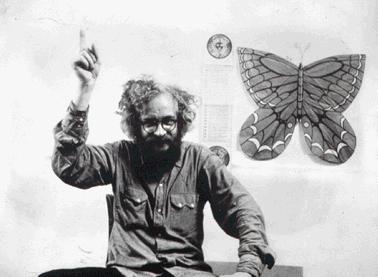







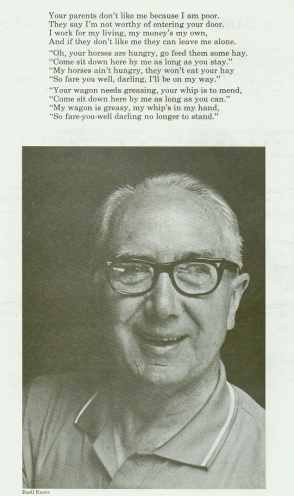

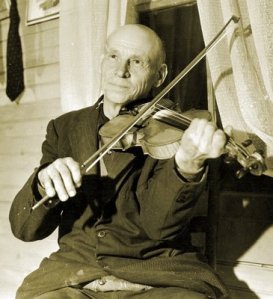


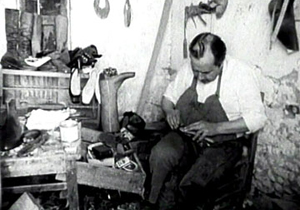
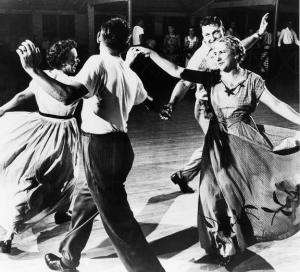




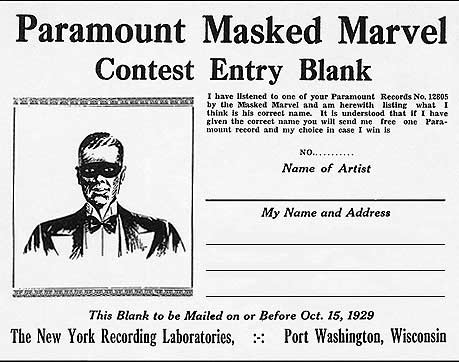

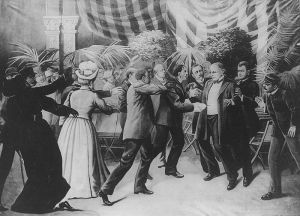





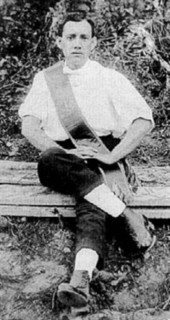
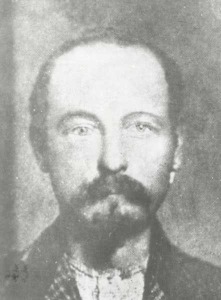
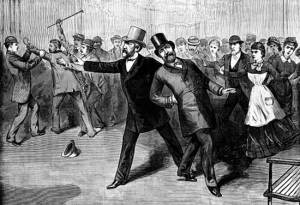
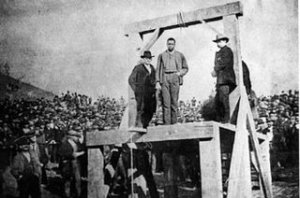
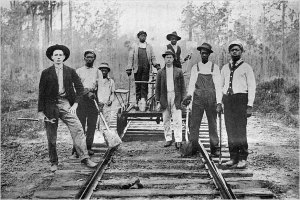







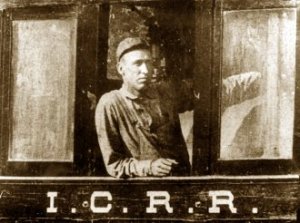





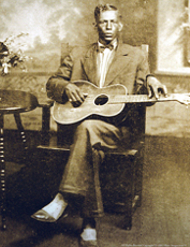
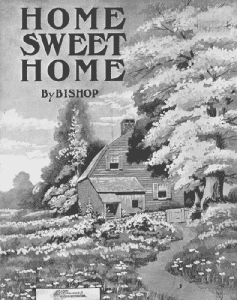



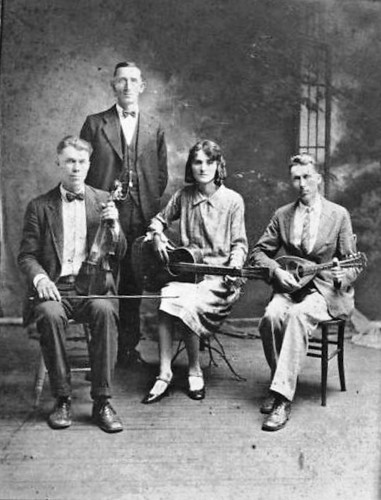




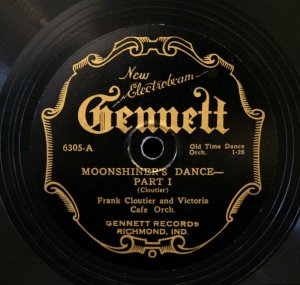











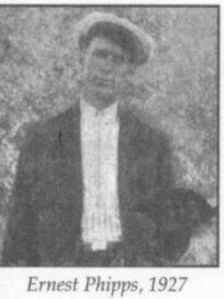






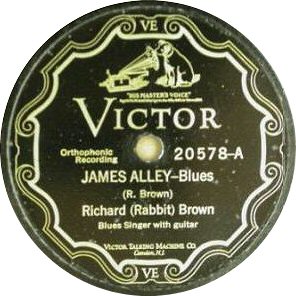
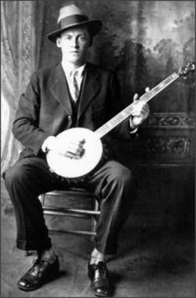


how sweet this is, thanks for the gifts
Encore une fois: merci beaucoup.
There is also an “R” rated version by Gene Autry–rec. c. 1932 [along with his “X” rated Bye Bye Cherry]
THANKS! Great compilation.
Don’t know where it would fit, but I love the wildly Yiddish-centric take-off, “Mulka and Moishe:”
She looked through a window and almost plotzed
Moishe was shmutzkying with Bess!
That meshuggenah Moishe–
He was doing her wrong. . . .
The bullets made Moishele bleed
She fired too low
And he didn’t die–
But a moil he’ll never need.
Oh boy, this is an absolute treasure trove! Charlie Poole’s “Leaving Home,” could be added to the Country, Old-Time, Folk list – it’s one of my favorite versions.